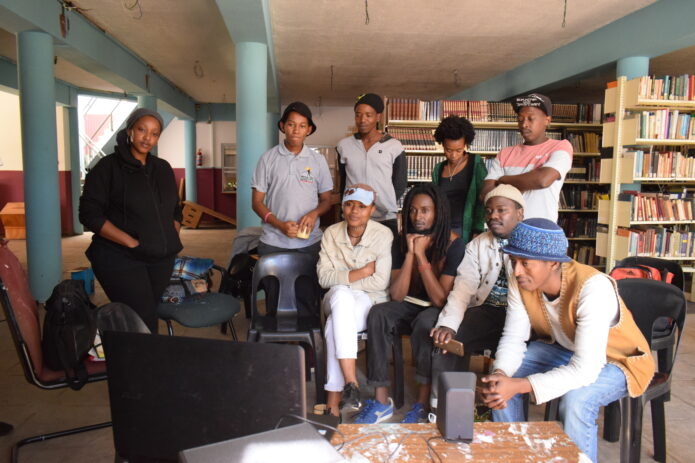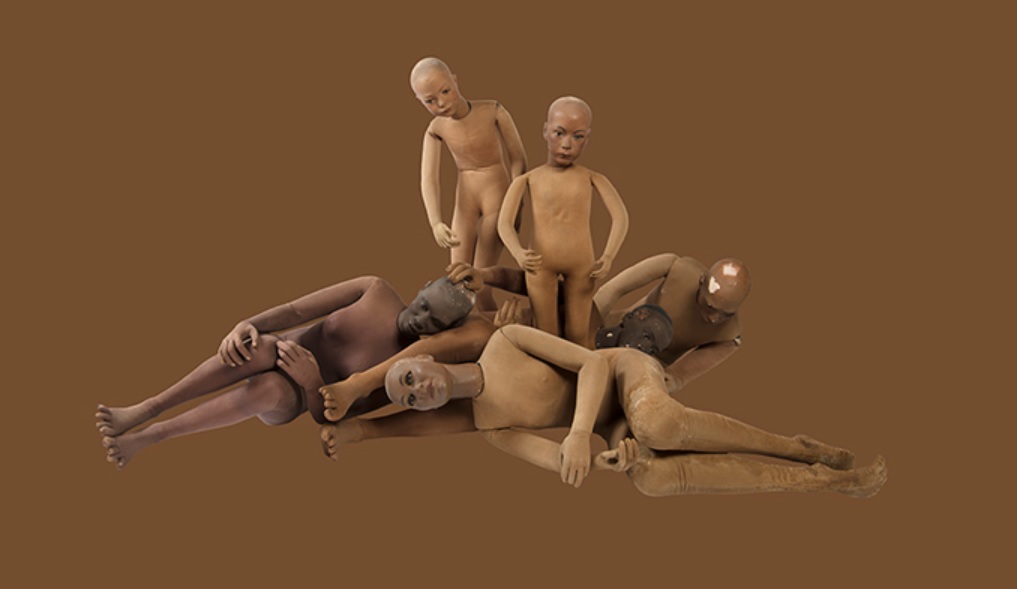 Sara Blokland, Reproduction of family, part 5: The Dollhouse /The group (2020). Special thanks to the Museum van Wereldculturen.
Sara Blokland, Reproduction of family, part 5: The Dollhouse /The group (2020). Special thanks to the Museum van Wereldculturen. Report: Sara Blokland's lecture as part of Decolonial Futures
Decolonial Futures is an educational programme organised between Framer Framed, the Sandberg Instituut, the Gerrit Rietveld Academie and Funda Community College in Soweto, South Africa. The first term of Decolonial Futures 2021-2022 consists of three hybrid sessions at Framer Framed taking place from November to December. Participants will work towards the making of a documentary whose format and content will be informed by guest filmmakers, writers and artists. It kicked off with a lecture by Sara Blokland. Petra Parčetić was present to report. Read more about it below.
Decolonial Futures: Lecture with Sara Blokland
Family history, identity, and colonial legacies, 9 November 2021
Displaying one of her photographs, Sara Blokland opened her lecture with questions: what impressions are gained through a staged and a candid photograph and how are images interpreted when seen from the observer’s perspective compared to the creator’s one? What parts of family heritage are conserved in family photographs?
This automatically encouraged the participants into active thinking and engaging with the topics of colonial heritage and family histories affected by colonialism, which are frequently the main theme of her work. The photograph was part of her “Photographic performance” photography series, where she experimented with staged and candid moments caught on camera, along with the dialogue these two create.
This started an unfolding narrative about family history that Sara Blokland explores through her work. Some of the most important questions that outline the artist’s work focus on who is looking/experiencing the image and how it changes its narrative; who has access to a certain moment? Assessing the ways colonial past tackles one on an individual level, as well as the lives of individuals, in turn, reflect the consequences of colonialism, Blokland’s lecture was an insightful start full of questions to answer, of the first term of Decolonial Futures 2021/22.
Further on, Sara introduced the element of language as part of cultural heritage – again mediated by the photographic work of hers. Presenting the audience with the series of photographs from Suriname, where her father’s (thus hers) origins are located, it was a dive into revisiting one’s origins and heritage. Talking about the limits of linguistic expression, Sara also juxtaposed the Dutch language in The Netherlands and the Dutch language in Suriname
The culture that existed before the incorporation of Dutch language and developed parallel to the language, Sara proposed that the language here becomes heritage, time and place – “Death is owned by the living, death is about the life we have known before”, told by the artist in her book Sideways.
Turning to another side of her family tree, namely her mother’s, Blokland also presented a family history affected by holocaust and the experiences of living with the scars it left. A reflective video work featuring Blokland’s mother tackled the topics of invisibility and trauma, thus the limits of visual forms when expressing it. Like the previously introduced projects of Blokland, Mother’s History explores the political and societal conflicts and violence on a personal, family level. Blokland, therefore, makes it all part of a larger work: Reproduction of family. (More on this project can be found here)
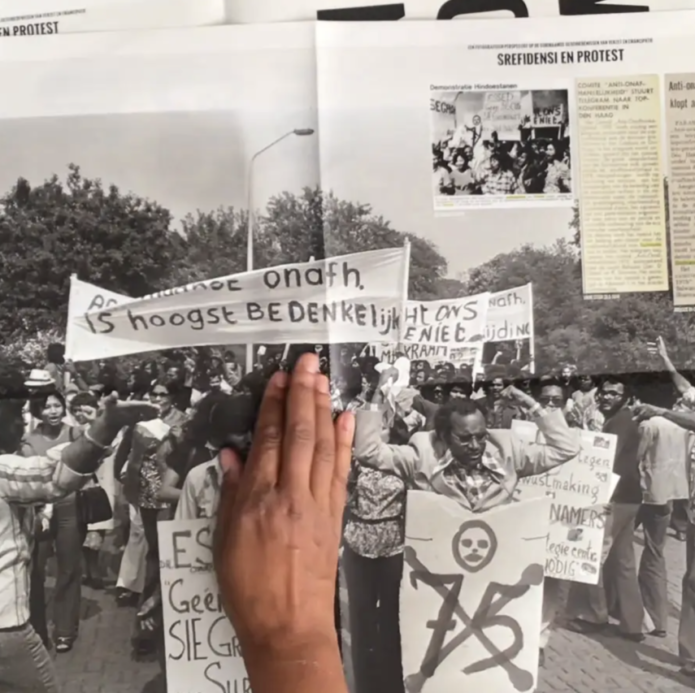
The second part of the lecture particularly paid attention to prospecting the violence towards Black and coloured bodies through so-called ‘exoticisation’ and how they are depicted in Blokland’s pieces. The artist revived and photographed forgotten dolls representing the peoples of Dutch colonies that were exposed in 1938 World fair, as part of the Reproduction of Family project, in order to revisit the meaning behind their appearance and sole existence. Another work featured photographs of Blokland’s family on a series of plates, resembling the ones people used to hang on the walls as part of home decor. Displaying an inventive perspective on exoticisation of the colonised nations, Sara’s work sparked a conversation among the participants.It led to a series of questions regarding both the meanings behind the specific aesthetics of the works, as well as the societal implications regarding colonial past and experience of the oppressed and the relationship between these two.
With a diverse display of her works, Sara Blokland gave the participants rich food for thought about the topics of family heritage, language and identity within the frames of (de)colonisation. Although two hours were certainly not sufficient to assess such a broad and complex topic such as decolonisation, Blokland masterfully delved into the points of her photographic work that embody the problematic relationship between family histories, identity and colonial legacies. With many remarks to think of, the lecture of Sara Blokland is a fruitful point of departure for this year’s Decolonial Futures.
About this semester
The 2021-2022 programme is focused on documentary as a medium of both de/colonial practices of making, representing and looking. This year, Decolonial Futures will also be punctuated by the Winter School, a 10 days long programme in 2022 in which participants from South Africa and the Netherlands will have an opportunity to meet in Amsterdam and to collectively ponder on the materialisation of the colonial remnants and decolonial strategies in everyday life. The on-going work and discussions will be restituted to the public at the end of the programme.
The focuses of the first term explore:
- (1) What are the ways in which the colonial affect you/your environment in day to day life?
- (2) How could you capture that feeling/observation/relation?
- (3) How does documentary, as a medium, participate in de/colonial practices of making, representing and looking? How can the medium become a tool for empowerment?
- (4) What methodology can you think of/do you want to apply in the making of a documentary?
Classes will take place at Framer Framed in Amsterdam, where we will host a series of screenings, talks and workshops by individuals whose practices engage with narratives of de/colonialism, their histories and their current unfolding.
In parallel, participants at Funda Community College in Soweto will work on archival material accumulated over the years of DF since the inception of the programme and will reflect on their experience, the feasibility and limitations of decolonial educational endeavours and the cross cultural exchange that attempted to address it.
The two groups will offer their insights and their work in progress to one another, although the final outcome of both documentaries will be dependent on the quality of the exchange and inclination of all participants.
Shared Heritage / Community & Learning / Colonial history / Art and Activism / Suriname / South Africa /
Agenda
Decolonial Futures Workshop Series: The Womb Republic - How to Rebirth
A cultural exchange programme with Funda Community College, Soweto, South Africa
Decolonial Futures Winter School: Creating Space for a Hundred Flowers to Bloom
A cultural exchange programme with Funda Community College, Soweto, South Africa
Decolonial Futures: Workshop with Ariella Aïsha Azoulay
First term of the Decolonial Futures programme 2021-2022
Decolonial Futures: Workshop with Aditi Jaganathan
First term of the Decolonial Futures programme 2021-2022 with selected Artist Talks
Decolonial Futures: Workshop with Sara Blokland
First term of Decolonial Futures programme 2021-2022
Network
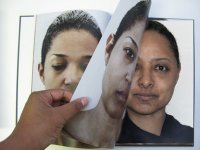
Sara Blokland
Artist, Curator and Researcher
Magazine
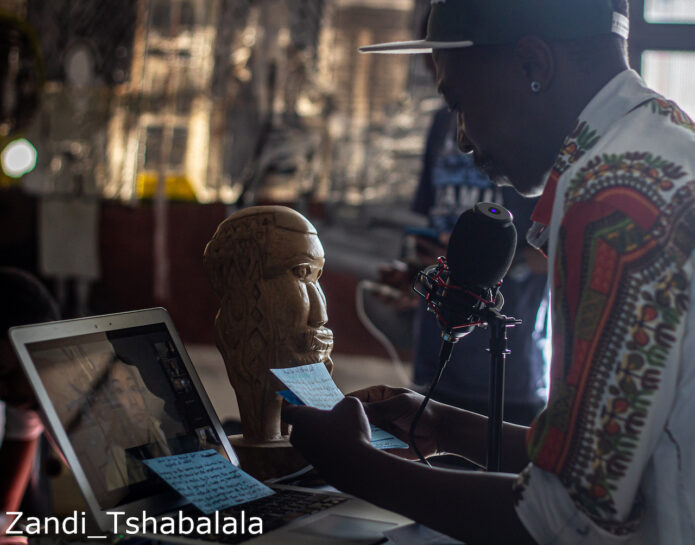

Report: Decolonial Futures with Aditi Jaganathan
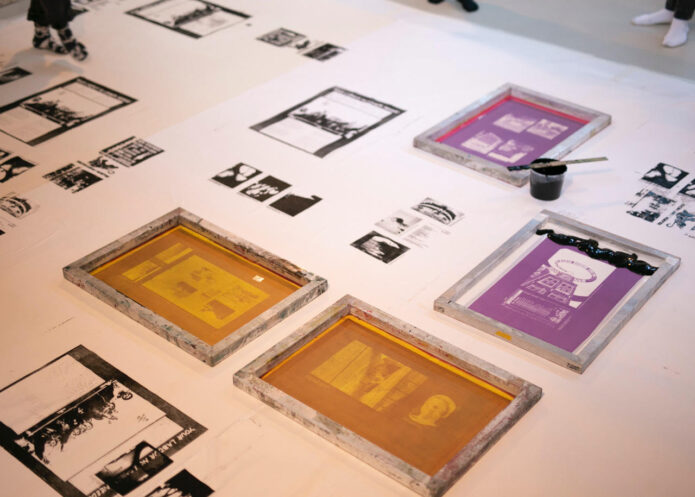
Decolonial Futures: Second Term
